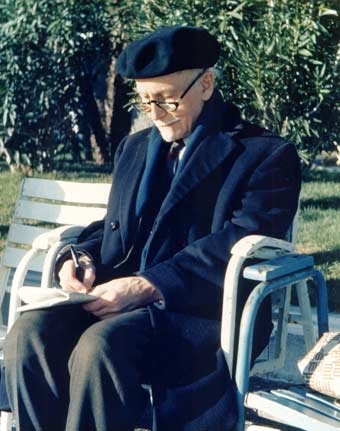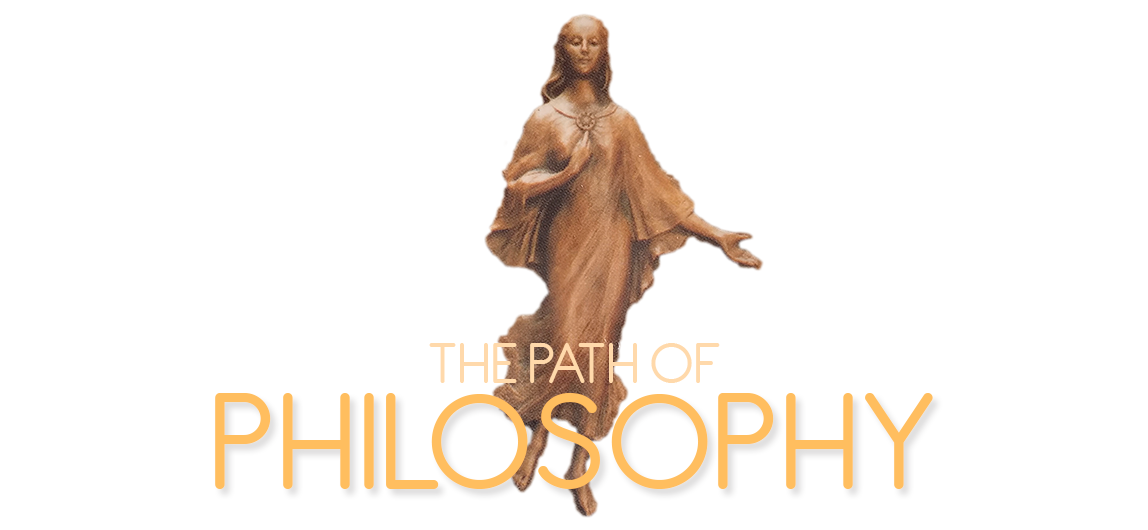 Paul Brunton (1898-1981) is well-known for his spiritual travelogue’s titled “A Search in Secret India” and “A Search in Secret Egypt” and for having introduced his teacher, the great Mahatma Sri Ramana Maharishi, to both Indian and Western audiences. From the mid-1930’s until the early 1950’s he wrote a total of ten which were translated into over 13 languages, all becoming spiritual classics which served to introduce Eastern wisdom to Western seekers in a form suitable to the “modern” lives of tens of thousands of seekers. ‘PB’, as he is known, spent a number of years living in India and circled the globe multiple times, seeking out spiritual teachers, healers, and pundits from whom he could learn teachings and practices, all while maintaining his spiritual independence and critical intellect. His early books included instruction on meditation, introduced the idea of a spiritual path (“The Quest”) and a divine soul (“The Overself”), and presented a synthesis of Hindu and Buddhist teachings adapted to the discoveries of modern science and a Western intellectual mentality. In his highly acclaimed 16 volume Notebooks, published posthumously, he presented a synthesis of perennial wisdom traditions in the form of 28 “Ideas.”
Paul Brunton (1898-1981) is well-known for his spiritual travelogue’s titled “A Search in Secret India” and “A Search in Secret Egypt” and for having introduced his teacher, the great Mahatma Sri Ramana Maharishi, to both Indian and Western audiences. From the mid-1930’s until the early 1950’s he wrote a total of ten which were translated into over 13 languages, all becoming spiritual classics which served to introduce Eastern wisdom to Western seekers in a form suitable to the “modern” lives of tens of thousands of seekers. ‘PB’, as he is known, spent a number of years living in India and circled the globe multiple times, seeking out spiritual teachers, healers, and pundits from whom he could learn teachings and practices, all while maintaining his spiritual independence and critical intellect. His early books included instruction on meditation, introduced the idea of a spiritual path (“The Quest”) and a divine soul (“The Overself”), and presented a synthesis of Hindu and Buddhist teachings adapted to the discoveries of modern science and a Western intellectual mentality. In his highly acclaimed 16 volume Notebooks, published posthumously, he presented a synthesis of perennial wisdom traditions in the form of 28 “Ideas.”
We have been honored to be able to translate a number of his books into Portuguese as well as to assist in the development of a Portuguese Paul Brunton website (www.paulbrunton.com/br). Micha-El served as one of the original directors of the Paul Brunton Philosophic Foundation and as its President, and also had the opportunity to meet PB three times. While living in Miami Beach, Gran was introduced to his books and he became a living presence in her life.
To listen to an audio recording of Paul Brunton’s voice see it below on the topic: Paul Brunton Speaks to Seekers
Click here for a selection of teachings from Paul Brunton.
Information about PB, his life and teachings is available on the website of the Paul Brunton Philosophic Foundation: www.paulbrunton.org
Paul Brunton You-Tube Channel: This bi-lingual English-Portuguese channel, authorized by the Paul Brunton Philosophic Foundation, features lectures about Paul Brunton and his life, his teachings, and commentaries on his books. Click here
Paul Brunton Speaks to Seekers
This transcribed talk by Paul Brunton (1898-1981) is believed to have been recorded on an audio cassette in Switzerland in the mid-1970s and sent to Anthony Damiani, the founder of Wisdom's Goldenrod Center for Philosophic Studies in the United States.
TONY has asked me to speak a few words to those of you who have read some of my books. If I agree, as I do, it is only on the condition that I am not to be taken as a Guru. My job is writing down ideas which I have gathered in the course of a lifetime’s study of world literatures, and particularly Asiatic literatures, and talks with teachers themselves. If any of you find some of these ideas are helpful to you, as they certainly have been helpful to me, you are welcome to them. But beyond this communication, I make no claims and have no disciples. I live in retirement and semi-solitude.
There is a danger in these studies that you may tend to over-emphasize the intellectual elements, to regard them as another branch of academic work. This would be a mistake. In attempting to understand these books, it is important to avoid such a wrong emphasis and to secure a proper balance instead. This must be a balance between the interests of the heart and the interests in the head. That is to say, the feelings must be brought into play, just as much as the reasoning intellect. It is only by establishing a fine balance between the two that you can come to the verge where intuition may be awakened, the intuition which will lead you to a higher truth.
Of course, you probably know by now that another important, most important, process of awakening this kind of intuition is the practice of meditation. This has been very much misunderstood and there are, even in the Orient, all sorts of misconceptions and superstitions about it. Yet the essence of it is very simple. You are all victims of a machine which is producing thoughts continuously, and you have lost control of the machine. Meditation is a process to regain this control, and then the biggest obstacle in your way can be cleared. These thoughts make a screen between you and the rest of your inner self, and in that inner self lies the best part of yourself, the higher self, the over-self. Now all the different systems of yoga that you have heard about are mainly devices to bring the mind into concentration and to turn this concentration inwards so that you are able to withdraw attention from the world outside and learn to listen within. That is the basic principle of all yogas. When the mind is sufficiently quieted, then and only then can this higher part of your nature begin to make itself palpable to you. But it is necessary to point out that meditation, because it offers so much in the end, requires you to give so much. What you have to give is time and practice, and even more than anything else, is patience. Without patience, you cannot hope to learn meditation. There is no fixed time in which it can be learnt, because each of us is an individual, and with some, the pace is quicker and with others it is slower. It is also a matter of the circumstances in which you happen to be placed at the time. They will either hinder or help your learning meditation. But patience is needed, and many people, I have noticed, get discouraged in their earlier efforts because they do not see any progress coming. And that is a mistake, to give up prematurely. But with patience, there will come its rewards in the end. Part of this reward is the new inspiration you will receive, inspiration for whatever work you do and especially for those of you who are connected with the arts, inspiration in intellectual matters, and inspiration in the dealing with your daily life. Certainly for the artist, technique is only part of the game - he needs to become inspired as well, and meditation is one of the ways of getting inspired.
Another topic which is constantly being brought up is the necessity of a Guru. Of course, an instructor in any subject is a help to students of those subjects, of that subject. But the fact remains that there are few competent instructors in the pursuit of Truth who have themselves realized the Truth. It is not hard to find those who have promoted movements, founded societies, created organizations along this line, but their reliability and competence is another matter. Generally they have something to give, but it is usually mixed with opinions and interests which may not be so desirable.
There are, finally, two other points. The first is, bring to this quest a feeling of worship because, after all, you are seeking a communion with a Higher Power, with something above, beyond, and transcendent of yourselves. You cannot approach it as you would approach your professor. There is something sacred and holy around the very concept and you must try to awaken this attitude — that it is like entering a church which you really respect.
And the last point is that the world outside you and around you, the world of other people, is not much interested in the line you have taken and may even be hostile to it. They may try to discourage you or to oppose you. This is understandable. Their past histories made them what they are just as your past history has made you the seeker that you are. I suggest therefore, that you should not try to make your pursuit of the Truth a conspicuous affair. After all, it is something that does not really concern others except in its indirect consequences. It is something which concerns you and your Higher Self only. So don’t make a public show of it, or any fuss about it, or make any mention of it. Keep it to yourself. Only where someone else has strong doubts and is beginning to seek and approaches you, can you profitably discuss it, and even then, one should not discuss it more than necessary. The last words of the Buddha before he died were, “Be a lamp unto yourselves.”
Well, goodbye, and may the peace and tranquility which already lies deep within you, covered up by your ego and its thoughts, may that reveal itself to you. Peace, peace, peace.

